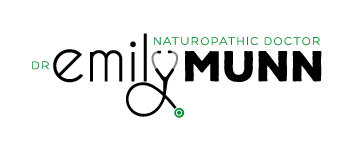Carrying to Term
After suffering a miscarriage, you may feel frustrated, defeated, confused, scared, mad, determined, sad, motivated, answer D -all of the above and more. Experiencing early pregnancy loss can be very upsetting and can leave a woman feeling a whole mixture of emotions, partially to do with the fact that your hormones are changing rapidly as well during the process. I have found that a conventional medical approach is to generally say, “it’s just bad luck, better luck next time, please try again.” There is very little to no treatment given or labs run and often you are kind of put on this “wait and watch” list to see if you will have another one next time you do become pregnant. This is frankly not good enough and down right scary to go through! We can do better. Instead of taking a re-active approach, can we not take a pro-active approach, do some investigating into the most likely cause(s) of your miscarriage and put a treatment plan in place to reduce your miscarriage risk? Yes, yes we can! This is the functional or naturopathic medicine approach.
First things first -know your risk at the get go. There are several underlying conditions that increase your risk of miscarriage. You may not know if you have one of these conditions so getting tested to find out is part of your risk assessment.
Some conditions and states of being that have a higher risk of miscarriage (1):
Polycystic ovarian syndrome (PCOS) and diabetes
Luteal phase defect (LPD) -basically your uterus is not where it should be for the day of your cycle you are on, often there is spotting and shorter cycles <26 days
Premature ovarian failure (POF) -”early menopause”
Hashimoto’s thyroiditis -autoimmune thyroiditis
Hyperhomocysteinemia (HHCY) -possibly just a sign of nutrient deficencies or genetics
Autoimmune diseases (Celiac, lupus, Crohn’s, etc.)
Antiphospholipid syndrome (APS) -mostly a clotting problem
Hyperprolactinemia -high prolactin, can look like LPD but often with breast pain in their cycle
Endometriosis -usually significant painful menstrual periods and pain outside of menstrual cycle timing
Alcohol intake -more than 4 drinks per week
Caffeine intake -more than 2 cups per day
Age -over 35 years old
Second -have your overall health and well being assessed because this matters to get you to carry to term. What is your diet like? What is your lifestyle like? Are you taking the right prenatals? Vitamin D? Probiotics? Omega 3s? Are you taking any of the above? What is your partner’s health like? Remember it often takes two to tango! Book in for a couples fertility initial visit or an individual’s initial visit to get the complete treatment and care you deserve.
Bringing it together -have a proper assessment done to complete your health history and get testing to identify if you have any one or more conditions that increases your risk of a miscarriage. As an ND we can order all kinds of blood work and testing. Then, have a plan in place such as decrease your alcohol intake, improve your egg and sperm quality as DNA carriers, thicken up the uterine lining and decrease systemic inflammation for good implantation, consider using progesterone suppositories until 10-12 weeks of pregnancy, things like this.
Virtual hug. Your story matters.
Resource:
(1) Dr. Jordan Roberston, ND. “Carrying to Term: A practical guide to reducing your miscarriage risk.” First Choice Books, Victoria, BC. 2018.

